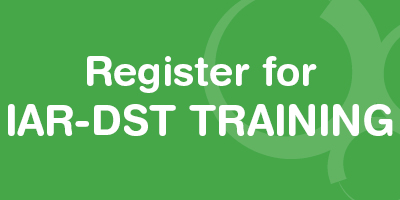Initial Assessment and Referral (IAR) Decision Support Tool (DST)
The Initial Assessment and Referral (IAR) Decision Support Tool (DST)is a national initiative developed by the Australian Government Department of Health, Disability and Ageing. They developed the National PHN guidance –Initial assessment and referral for mental healthcare as a resource for learning about IAR, supporting primary healthcare clinicians to find the most suitable level of care for patients seeking mental health support within the stepped-care approach.
This clinically informed online tool supports decision-making at the first point of contact with a patient. Based on the stepped care model, the tool recommends the most appropriate level of care based on the patient's current needs. It provides a standardised, evidence-based, objective approach to making mental healthcare recommendations in primary care.
IAR-DST Training
We are providing training and ongoing support to assist GPs in using the IAR-DST in their daily practice.
We invite GPs working in the Nepean Blue Mountains region to attend this training to learn about, use and embed the IAR-DST within your practice. For more information and registration details, visit our IAR Training page.
What is the IAR-DST?
The IAR-DST is an online evidence-based tool to assist GPs and other primary healthcare clinicians to recommend the most appropriate level of care for a patient seeking mental health support based upon the stepped care model. This means, a patient needing support is matched with the least intensive and least intrusive evidence-based intervention which will lead to the most significant gain for that individual.
The IAR-DST is designed to guide conversations with patients about treatment/care types, patient goals/needs and progress planning. It is not a substitute for a professional knowledge or clinical judgement. Rather, the tool supports clinical decisions in determining the most suitable Level of Care for a patient. It reduces the pressure on clinicians by offering recommendations to support their decision-making. Information on the Domains and Levels of Care can be found on the IAR Snapshot.
The Department of Health, Disability and Ageing is working to integrate the IAR-DST across all healthcare digital platforms to create a seamless workflow for all primary healthcare providers.
The IAR-DST is not:
- prognostic
- diagnostic
- predictive
- a treatment planning tool
- a replacement for the GP’s capacity to make individualised clinical judgement based on the patient’s particular circumstances.
What are the benefits of IAR-DST?
GPs are often the first point of contact for a patient when a mental health issue emerges. Patients talk to their GP about mental health more than any other issue. Using the standardised IAR-DST tool, clinicians record and communicate treatment needs using language commonly understood across the sector.
The IAR-DST helps to improve access to mental health services across primary care to ensure that patients are accessing the right level of care at the right time. As a transparent patient-focused tool, IAR-DST allows patients to be actively engaged in their mental healthcare, giving them the best chance of recovery.
To further assist clinicians in navigating mental health services, we have recently re-developed and re-launched the Mental Health Help website. By using the search function, GPs and other clinicians are quickly and easily able to match a patient’s level of care with an appropriate mental health service in the local region.






